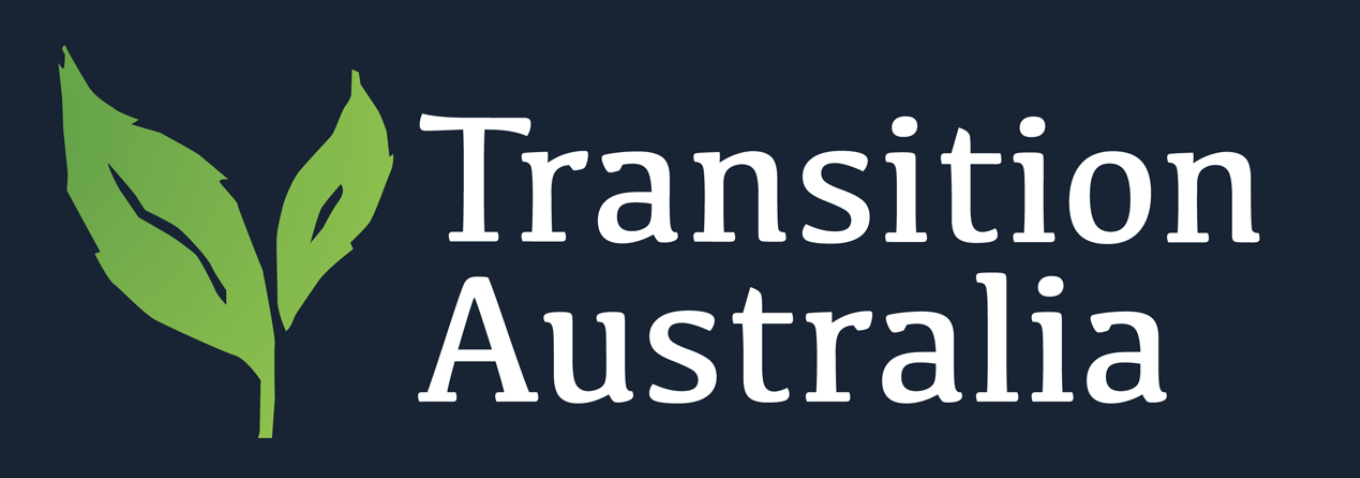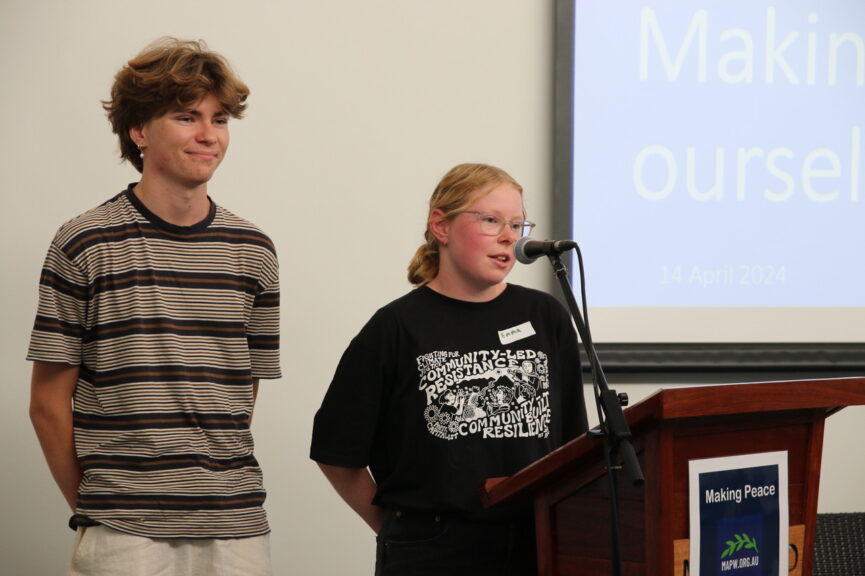In April 2024, Transition Margaret River partnered with the Medical Association for Prevention of War (MAPW) to hold a one-day event, MAKING PEACE – IN THE WORLD, IN COUNTRY AND IN OURSELVES. The association with MAPW goes back several years, with a fabulous Peace Weekend in Margaret River in 2019 and several smaller events since then.
Someone asked me in the lead up to the day ‘Why is Transition, with its “act local” focus, partnering a peace event?’ My answer was that peace is indeed a local issue. Events around the world touch us. Many people are anxious and grieving for loved ones in war zones and for the impact of climate change on our environment and security. Peace in society and in ourselves is fundamental to being resilient and joyfully productive.
With that in mind, we had several objectives for our event. They included raising awareness about current issues in war and peace and opportunities to support peace work, and engaging with local environment and social justice groups to share stories and foster support for their causes. Some 65 people gathered, ranging in age from children to eighties and, happily, drawing in some folk who haven’t previously engaged with transition.
Keynote speaker Dr Sue Wareham OAM, President of MAPW Australia, flew in from Canberra. Her address was informative and, despite the confronting subject, had elements of hope. She talked about the weapons industry, AUKUS, the UN Treaty on the Prohibition of Nuclear Weapons (which Australia has yet to sign) and gave us ideas for taking action. Key points relevant our transition movement were that war undermines efforts for sustainability and social justice at multiple levels, including human rights, refugees, health, sustainable development, environmental governance and military greenhouse gas emissions.
Here’s where we come in. ‘Community leadership on the big issues of our time – war, peace, environment and climate justice for all peoples – is critically needed. Where our Governments are failing us, communities are leading and setting the agenda.’ We heard about a series of local projects that are giving people an opportunity to step up to help our environment, our community and each other, and in doing so take agency to create the future they want. A recurring theme was the health benefits of care for nature and connection in community. A focus was to engage with youth – in fact the feedback afterwards was that their talks were the highlight of the day for many.
One participant commented ‘I was particularly impressed by the young people, how articulate, well informed and passionate they are about making changes in the world. It was very moving and gave me hope for the future, though I could sense their anxiety and frustrations about lack of action from the “grownups”. What a day!’
Moving on, a direction for our group will be to support the young folk and give them a respected voice. Our take-home message was that although we live in troubled times and sometimes experience anxiety and volunteer burnout, there are grounds for hope. Sue Wareham shared a wonderful quote from US historian Howard Zinn who wrote an essay “The optimism of uncertainty”. To be hopeful in bad times is not just foolishly romantic. It is based on the fact that human history is a history not only of cruelty but also of compassion, sacrifice, courage, kindness. What we choose to emphasize in this complex history will determine our lives. If we see only the worst, it destroys our capacity to do something. If we remember those times and places–and there are so many–where people have behaved magnificently, this gives us the energy to act, and at least the possibility of sending this spinning top of a world in a different direction. And if we do act, in however small a way, we don’t have to wait for some grand utopian future. The future is an infinite succession of presents, and to live now as we think human beings should live, in defiance of all that is bad around us, is itself a marvellous victory.
Find out more:
Transition Margaret River Newsletter 145 May 2024
https://transitiontmr.wordpress.com/category/newsletter/ or click here (includes links to key presentations)
Main image: Young presenters at Making Peace, Will Dallimore (16) and Emma Heyink (17) from the Margaret River Youth Climate Collective
Karen Majer, Transition Margaret River
May 2024

